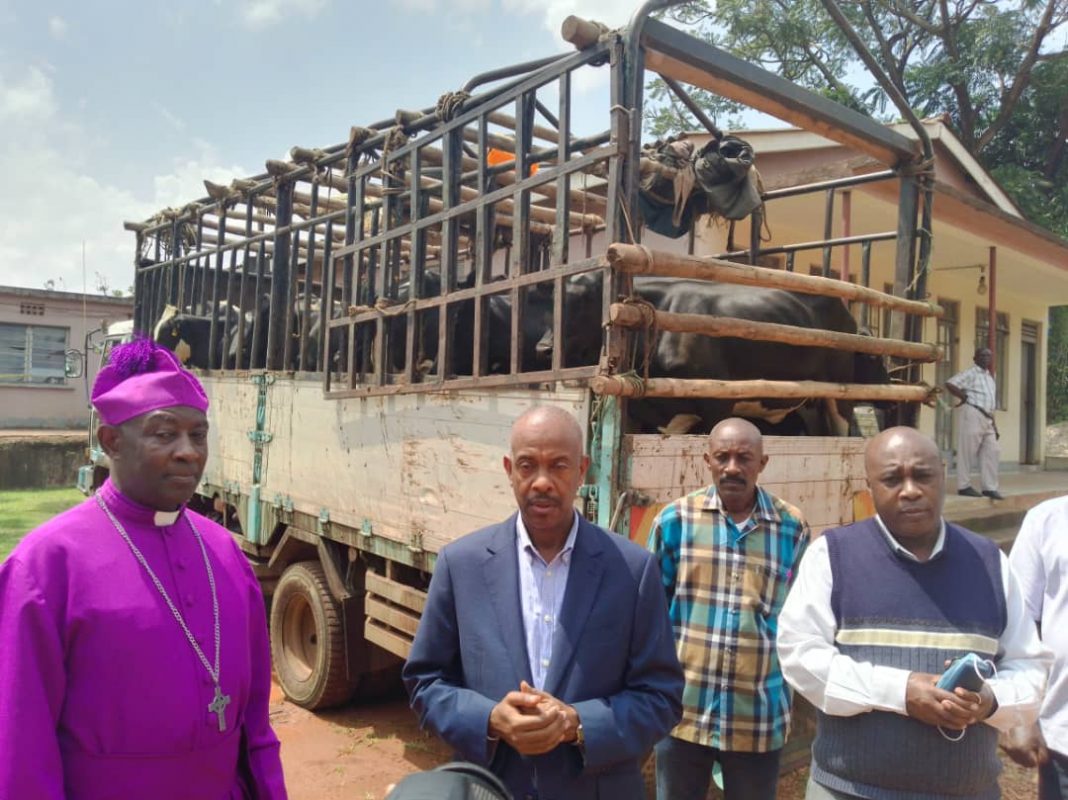Government of Uganda through the National Agricultural Advisory Services (NAADS) has today handed over an additional 20 in-calf heifers to Church of Uganda bringing the total to 119 out of the total number of 159 heifers earmarked to be distributed to 5 dioceses this financial year
The heifers were flagged off this afternoon by the Archbishop of the Church of Uganda the Most Rev Dr Stephen Kaziimba Mugalu at the Coordinating Office for Control of Trypanosomiasis in Uganda (COCTU) in Kampala.
The 20 heifers handed over today are in addition to heifers so far delivered as follows;- 39 to Kitgum Diocese, 20 to West Lango Diocese, 20 to Central Buganda Diocese and 20 to Busoga Diocese. The additional 20 are to be delivered to Busoga Diocese to make a total of 40 to that Diocese.
NAADS will also distribute 800 piglets to the aforementioned Dioceses before the end of this financial year.
According to Dr. Samuel Mugasi the Executive Director of NAADS, Church of Uganda will also receive 24,000 kuroilers, 100,000 cocoa seedlings, a ginger processing equipment and a coffee huller.
He noted that all the cows that have been handed over were tested by their veterinary doctors and are safe from diseases.
Archbishop Kaziimba commended the government of Uganda through NAADS for partnering with Church of Uganda to develop communities through providing them with agriculture in puts and machinery.
He further thanked the government for the 10 tractors that were recently distributed to Dioceses and reported that they are being used well and testimonies are already being shared.
Mr. Balaam Muheebwa the Provincial Treasurer said the Provincial Secretariat has already dispatched two teams to meet with the leadership of the Dioceses and beneficiaries to supervise the implementation of this partnership.
On 24th March 2022, NAADS signed a Memorandum of Understanding with Church of Uganda to strengthen agriculture production in the Province.
The MoU will see the Government of Uganda inject UGX 2Bn in establishment of farmer demonstration and learning hubs for selected enterprises in the Province, training farmer groups on appropriate agronomic practices for selected crop enterprises, conducting joint monitoring visits by the implementing partners among other activities.






















